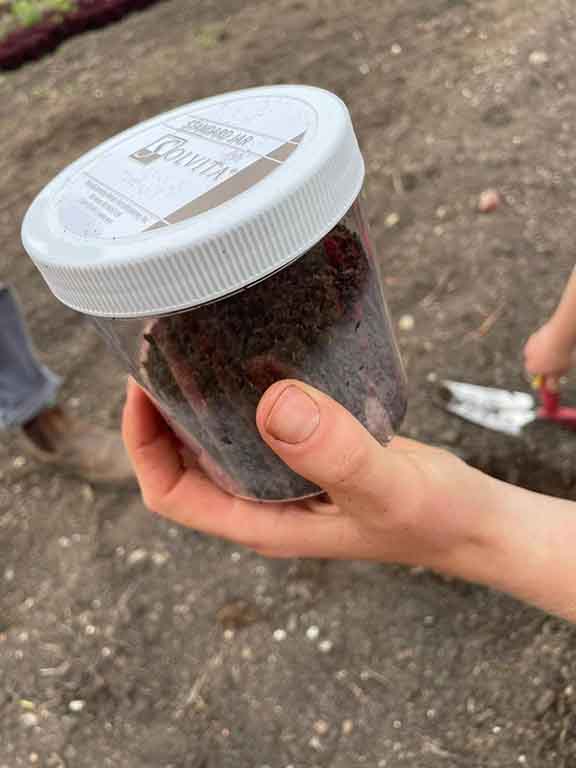We have recently received funding to expand our work in supporting small-scale agroecological farmers, growers and landworkers to carry out research and trials on their own farms as part of the ‘Experts in Your Field’ project.
In the first phase of ‘Experts in Your Field‘ we brought together a group of small-scale farmers, foresters, and food growers to collaboratively design an innovative research project centring their own expertise.
Through participatory workshops, we identified biodiversity as an initial priority theme, alongside sustainability and resilience, productivity, and community impacts of different agricultural practices. Participants were keen to gather data demonstrating how their sustainable practices support wildlife. We co-designed methodologies for on-farm testing of different biodiversity metrics over the busy summer season.
The hands-on process yielded fascinating findings while also highlighting barriers that farmers face in conducting their own research. Lack of time and funds for equipment were major constraints. Still, the willingness to engage was striking – 22 of the 40 landworkers who helped design the project participated in data collection, despite the hectic harvest period.



Beyond data collection, the greatest value was in connecting practitioners to share ideas and field insights. The camaraderie and mutual learning was palpable during farm visits and evaluation sessions. It became clear just how much applied knowledge resides within this community, even though research has not been explicitly part of their work.
We also gained key takeaways for how to structure farmer-led projects moving forward:
- Compensate farmers fairly for their expertise and time. This shows that their knowledge matters and enables more participants.
- Focus on practical methodologies aligned with on-farm realities and schedules. Academia doesn’t always fit the grounded needs of farmers.
- Foster peer learning networks. On-farm experiments can feel isolating without a community to discuss challenges and interpretations.
- Recognise barriers participants face, especially surrounding scarce time and resources. Securing equipment access and providing stipends to cover costs encourages involvement.
Stay tuned for Phase 2, during which we will expand the farmer researcher cohort, digging deeper into biodiversity while also exploring themes like carbon sequestration, resilience, and regenerative productivity. There is so much wisdom yet to unfold! Find out more yma.
If you would like to learn more about how to get involved with this project then please come along to the free webinar on Monday the 11th of December – register here – or email Isobel on isobel.talks@landworkersalliance.org.uk.
If you are unable to attend the webinar, you can also register your interest yma.

